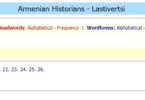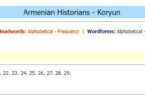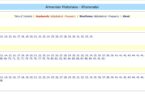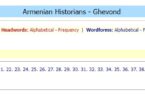p. 2 faith, enthusiasm, passion are substitutes for self-confidence, experience, skill. Where there is the necessary skill to move mountains, there is no need for the faith that moves mountains. A population undergoing drastic change is a population of misfits and misfits live and breath in an atmosphere of passion. Passionate intensity may serve as a substitute for self-confidence. A population of misfits is unbalanced, explosive, hungry for action.
p. 3 Action aims for self-worth. Action is the flailing of unbalanced to regain balance. The difference between Ineffective and effective men of action depends on 2 factors: (1) abundance of opportunities, (2) tradition of self-reliance. They seek self-esteem through individual pursuits.
p. 4 Where opportunity is lacking, they pursue substitutes – goal substitution. faith substitutes for self-confidence, pride for self-esteem, fusion into a compact group for individual balance. But need for substitute is insatiable. If we cannot have the original, we can never have enough of the substitutes. Become volatile, explosive. For moderate self-confidence, good opinion of society is enough, but faith must be uncompromising devotion to a holy cause. Pride must be extravagant, chauvinistic, passionate and intolerant. Collective action is driven by a desire to “show the world”, since they have a chip on their shoulder, need to be fanatical, defiant, revolutionary.
p. 6 Potency of propaganda has less to do with the message than the hearer. Demagogues persuade people of what they want to believe. Clamor rising all over the East is the clamor for pride.
p. 8. The impact of the West has been to undermine the social structure. Before intrusion of West, the individual was embedded in a compact group, never felt alone. But now shaken out of lethargy, ossified tradition, by a craving for self-advancement.
p. 9 Result not emancipation, but isolation and exposure. Immature individual torn from warmth and security of corporate existence, surrounded by crumbling corporate body. The newly emerging individual can attain some degree of stability and become inured to the burdens and strains of an autonomous existence only when he is offered abundant opportunities for self-assertion or self-realization. (Hence, move from Armenia to US). The individual needs an environment in which achievement, acquisition, sheer action, or the development of his capacity and talent seems within easy reach. Where self-confidence and self-esteem seem unattainable, the emerging individual becomes highly explosive. Rare constellation of circumstances are necessary for a smooth transition from communal to individual existence without diversion or reversals or catastrophic consequences.
p. 10 In the Reformation for instance, the individual was ousted from the corporate pattern of the all-embracing Church, but it was less deliberate emancipation than abandonment. Fortuitously, there were new vistas – new continents, new empires, knowledge through paper and printing, unique, remarkable confluence of favorable factors.
p. 11 Asia is mired in life that is stagnant, debilitated, meager. Life is cheap, millions grab at the meanest prize, meagrest morsel. The articulate minority is deprived of a sense of usefulness, worth through taking part in the world’s work, so condemned to a life of an idle, chattering, posturing pseudo-intellectual. Every student, minor clerk, office holder, feels himself one of the chosen, privileged, and they have a horror of manual labor, need the illusion of weight and importance, the explosive substitutes – price and faith. Live for the promise of membership in the ruling elite, prospect of a hand in historical processes, doctrinaire double talk of the soviet pseudo-intellectual.
p. 12 They need to feel that are engaged in a historical undertaking to make something new under the sun. Power corrupts, but so too does weakness. Power corrupts the few, weakness the many. Hatred, malice, rudeness, intolerance and suspicion are the fruits of weakness. The resentment of the weak does not spring from any injustice done to them, but from their inadequacy and impotence. We cannot win the weak by sharing our wealth with them. They feel our generosity as oppression. As St. Vincent de Paul admonish – “Learn to give so that the poor will forgive you the bread you give them.” But this requires in both giver and receiver a vivid awareness of a God who is the father of all and in a living mastery of the religious idiom, which we of this day do not and perhaps cannot have in full measure. We can’t help by sharing hope, pride or hatred with them. Our healing gift to the weak is the capacity for self-help.
p. 13 Impart to them technical, social, political skills that will enable them to get bread, human dignity, freedom, strength by their own efforts. Mastering the art or technique of helping the weak to help themselves is the solution to many critical problems confronting us not only in foreign, but also in domestic affairs.
p. 14 generosity, diplomacy, propaganda have not gained the US popularity, because it “lacks the essential ingredient – words for the intellectuals”
p. 15 The intellectual aspires either to be a member of the ruling elite, or closely allied with it. Needs privileges, like brahmins and clergy.
p. 16 In the 15th century, the Black Death killed off ½ the clergy, and printing created a non-clerical class of teachers. These orphaned intellectuals are poor relations, pick up crumbs. In the West, power was and still is the prerogative the men of action, not the intellectual elite.
p. 17 Intellectuals search for acknowledged status and a role of social usefulness. They are pioneers of social upheaval, but don’t know how to retain position of leadership, elbowed out by fanatics and practical men of action. Poets, writers, historians, scholars, artists, philosophers, hope to fine their “rightful place” as bearers of culture, legislators, statesmen, dignitaries, men of affairs, in the nation state. Nowadays, there are large numbers of unattached men of words in search of a weighty, useful life.
p. 18 There is a striking difference between the Communist and US treatment and management of intellectuals. Soviets put intellectuals at the top of the social ladder. Intellectual would rather be persecuted than ignored, since it makes them feel important when ever word is scrutinized.
p. 19 Stalin said “no ruling class has managed without its intelligentsia.” But in the Anglo-Saxon world there was social stability without demanding the whole-hearted allegiance of the intellectuals, except during the Cold War – McCarthyism. Problem with US foreign policy is that it fails to understand that “words count as much as deeds” Our chief handicap in bidding for souls is lack of words.
p. 20 Until recently, modernization mean westernization. Transplanting processes, methods, attitudes, institutions. But it is easier for the advanced to imitate the backward than vice versa. The backward and weak see imitation as an act of submission and proof of inadequacy. Need to rid themselves of sense of inferiority, prove their prowess, before opening minds and hearts to learning. Conquerors learn easily from the conquered, not vice versa. Thus, the grotesque truculence, posturing, conceit, brazenness and defiance that assail our senses whenever a backward country sets out to modernize.
p. 21 It is doubtful whether a Communist regime can instill in the masses an enduring readiness to work. It can rouse leftists to rebel. Islam is an instrument for converting the weak into conquerors, not Christianity or democracy.
p. 22 Defeated or dead models spread most easily. Heresies spread. Buddhism is a Hindu heresy, Islam a Christian heresy, Christianity a Judaic heresy. Communism a Capitalist heresy.
p. 23 A religion or civilization is most readily transmitted to alien societies by its heretical offspring which come into being as a protest or challenge to the static orthodoxy or sheer indifference of the powers-that-be. Deviants are fervent in their dissent, seek followers.
p. 24 Capitalism is about companies in a state. Communism about turning the state into a company, the maximalist heresy of capitalism is a super-monopolist state, captivating its workforce and consumer market – over-fulfilment of the capitalism’s thrust. Communists detached communism from its creators. Christians detached Christianity from the Jews.
p. 25 Origination vs. imitation. Originality requires more or less loose social order, in which the individual has leeway to tinker, follow hunches, take risks. Rapid imitation is easiest with social compactness, regimentation, and concerted effort.
p. 27 The Communists have to find ways to make people work. West needs to find enough jobs for people who want to work.
p. 28 Traditionally, work was a curse, mark of bondage, a necessary evil. The readiness to work in the West is unparalleled in history. The work ethic has its roots in the Benedictine rules – orare est laborare, laborare est orare. Work was an expression of reverence, co-Creatorship. 6 hours of manual labor required. Outside in the dark ages, there was no inclination to work beyond what was necessary for a low standard of living. The classical world had contempt for work, Christians had reverence. Per Max Weber, Luther’s idea of the sacredness of the individual’s calling and Calin’s predestination – in which work and success in this world was an indication of future salvation.
p. 30 In all societies, emerging individuals are unstable, explosive – young cut loose from family, discharged soldiers from army, corporate life, freed slaves, post-soviets, only the few can acquire a sense of worthy by developing and employing their capacities and talents. The majority prove worth by keeping busy. A busy life is the nearest thing to a purposeful life. Whether self-realization or easier route – self-justification, the unbalanced and restless must prove themselves each day.
p. 31 Communists try to herd back emerging individuals into the communal corral.
p. 32 European individualists reach the four corners of the world, carrying their restlessness and infecting the whole world with it. Art of government – not to let people go stale, keeping them off balance, without letting things get out of control. Just enough ferment to be creative or a least productive.
p. 33 Much has been said in praise of enthusiasm. The important point is that enthusiasm is ephemeral, and hence, unserviceable for the long-haul. Nothing more unhealthy and wasteful than requiring faith and dedication for performance of mundane, unmiraculous, everyday activities. The attempt to keep people in an enthusiastic state once they have ceased to believe produces pernicious consequences, crude and poisonous means – fear. The use of Terror to evoke enthusiasm is one of Stalin’s most pernicious inventions, extracting strength from crushed souls.
p. 34 Such a system requires deafening the ear with propaganda and crushing souls with terror, and constantly moving people around to keep them unbalanced. For the individualist society, individual itself is a source of imbalance. Work, not fulfilling, but not function of existence. The ability to do a day’s work and be paid validates one’s worth. Angst of unemployed not economic hardship, but corrosive sense of worthlessness.
p. 35 Where class or caste system, white trash emerges – indolent, insolent, no sense of the need to work. West doesn’t love work, but is addicted to work. Greek ideal of individual based on managing and leading others or developing and exercising one’s unique talents. Modern individual based on work, mass freedom, new mass bondage of having to prove oneself each day.
p. 36 The individual who has to justify his existence by his own efforts is in eternal bondage to himself.
p. 37 It is easy to organized targeted military or technical feat for an intelligentsia preoccupied with planning and managing others. Nothing more absurd to such an intelligentsia than the idea that if left to their own devices the masses will want to work.
p. 38 Creativity not a product of freedom. There is a chronic insecurity at the core of the creative process and he needs a milieu that will nourish his confidence and sense of uniqueness. Discerning appreciation and a modicum of deference and acclaim more vital than freedom. For such intellectuals, despotism more congenial with subsidies and recognition than a free society that doesn’t appreciate him. Conceivable that a free society could have such reverence toward the arts, but history shows otherwise.
p. 39 That’s what makes America different. The masses made America. It is this fact that gives American its utter newness. All other civilizations had their intellectual elites. America was shaped and colored by the tastes and values of common folk.
p. 40 The worship of success, cult of the practical, quantity over quality, addition to sheer action, fascination with the trivial are the defects of the masses (wrongly attributed to business culture). It’s virtues are superb dynamism, diffusion of skills, organization and teamwork, flexibility to adjust to change, self-starters, capacity for fraternization.
p. 41 Florence is the only earlier example of masses of artists, where artisans by day engaged in fine arts at night on a massive scale. They were as fascinated by the practical as the beautiful. Leonardo had a genius for gadgets as well as arts.
p. 43 Intellectuals often become champions of the masses to achieve their own self-fulfillment. But this is a new phenomenon, since the elites ignore them. What worried Gandhi most was the hardness of heart of the educated. Intellectuals, artists are handmaidens of the powerful, no real concern for the lower classes, more likely disdain.
p. 44 In the Middle Ages, the clerics aligned with the princes. Only in Hebrew civilization did men of words ally themselves with the masses. Starting in the 8th century BC, post-Solomon, there were many unemployed scribes. Amos the prophet, a literate shepherd, emerged as “open air journalists” to speak the truth at all costs, to liberate the chosen people, keep them true to their destiny, millennial society.
p. 46 Solomon’s bureaucrats became prophets, non-clerical literati. Self-appointed spokesmen for their inarticulate brethren. They were unattached educated people behold neither to Church nor State. Intellectual outsiders, superfluous in a civilization which should be his handiwork, powers-that-be are usurpers of his vision, intruders.
p. 47 antagonism between men of words and men of action made Hebrews a peculiar people. The unattached intellectual’s unceasing search for recognition and stature and a useful role has brought him to the forefront of every movement of change since the Reformation. Constantly sought a link with the underprivileged, potent alliance has been with the masses. Like a brain in search of a body to act in the world. Combination not based on real affinity – opportunistic.
p. 48 Thoreau – grievance is not mainly his “sympathy with fellows in distress, but, though he be the holiest son of God, is his private ail.” Once his private ail is righted, the intellectual’s ardor for the underprivileged cools. Cast of mind is aristocratic. “The many are mean, the few are noble.” The cockiness and crudity of the affluent offend aristocratic sensibility. They end up scorning their base. Hebrews after Bablyonian captivity, were the people of the book, loathing the masses.
p. 49 Common folk “am ha-aretz” even Hillel disdained them. Pharisees were so strong the Jesus could not pry masses away from the pretentious scholars, hairsplitting lawyers and arrogant priests. Jesus’ teaching in turn became the vehicle for the rise of a clerical class, feudalism, serfdom and superstition. Luther was no better than a reactionary once he had the support of the powerful for his mission.
p. 50 Marxism followed the same path. Proletariats are the chose people. Intellectuals who understand the historical movement are the collective Moses. Lenin – “The role of the intellegentsia is to make special leaders from among the intellegentsia unnecessary.”
p. 51 Never has the intellectual so completely come into his own under Communism. In staffing the bureaucracy, intellectuals became superior civil servants with charmed lives, prominent, pampered, petted. Traditionally a master used force to exact obedience. But for the intellectual because of faith in words and the irresistibility of the truths expressed, mere obedience was not enough. Had to compel belief. “Terror to extract faith and fervor from crushed souls.” Intellectual is the most incompatiable with the masses.
p. 52 Heine wrote of the “monstrous prison of freedom”, Neitzsche of the vulgar sway, of history into a shallow swamp.” Karl Jaspers the immense gravitational pull of suffocating mediocrity. Emerson of “rude, lame” Flaubert – “masses, never come of age.”
p. 53 Thus the purpose of the social order less to produce enlightened masses than uncommon people. Renan – “The dictatorship of the wise would have hell at its command. Not a chimerical hell of whose existence there is no proof, but a veritable hell” It would institute preventive Terror not unlike that instituted by Stalin 60 years later with “a view to frighten people and prevent their defending themselves and it would “hardly hesitate to maintain in some lost district in Asia a nucleus of Bashkirs and Kalmuks, obedient machines, unencumbered by moral scruples and prepared for every sort of cruelty.”
p. 54 What will the ruling intellegentsia do with the masses once they are superfluous? Dostoevksy’s Lyamshin in the Possessed, give the answer, “For my part, if I didn’t know what to do with 9/10ths of mankind, I’d take them and blow them up instead of putting them into paradise. I’d only leave a handful of educated people who would live happily ever after on scientific principles.”
p. 55 The Intellectual needs the masses for veneration. There is no satisfaction from dominating an aggregation of quarrelsome, backbiting, fellow intellectuals. Need simple hearted adulation.
p. 56 Chronically thwarted intellectuals feed the creative tension with authority that prevents stagnation.
p. 57 When intellectuals are in full control, no creativity. “The genuinely creative person lacks, as a rule, the temperament requisite for the seizure, the exercise, and, above all, the retention of power: Murderous hatred of intellectual brilliance. The most gifted of the members of the human species are at their creative best when they cannot have their way and must compensate by realizing and cultivating their capabilities and talents. A busy, purposeful life of action, not only diverts energies from creative channels, but above all reduces the potent irritation which releases the secretion of creativity.
p. 60 Explorers search for paradise lost. Reformers recast the world in perfect form. Practical inventors make the world better by work [GE – we bring good things to life].
p. 61 Collective unity => reduces present to mere link between glorious past and future. Individual lives in and for the present.
p. 64 Crusader created individuals, uprooted from somnolent Europe. The separated individual either emigrates, is exiled and left behind or carried off. Netherlands in the 16th century took in exiles from Spain, Portugal, France and England, both protestants and catholics, same with America.
p. 65 Classical Greek diversion – practical affairs renders body, soul and intellect of free persons unfit for the exercise of virtue.”
p. 66 scribes are an adjunct of productivity. Without product, the lack validation of usefulness. Hero’s steam engine for amusement. Chinese compass, gunpowder, printing – also for amusement. India’s arithmetic, water wheels grind out prayers. nothing useful. Aztec’s wheels on toys, but not on wagons. Same with Communists – impractical, monumental grandiose – gargantuanism.
p. 67 Communists want the spectacular and miraculous to stay inspired. Efficiency doesn’t matter. No link between research and technology, theory and application.
p. 68 US is the exception. Government and economy run by non-intellectuals.
p. 69 Like Phoenicians, outsiders who simplified complex scripts of Egypt and Mesopotamia. Scribes have a vested interest in complexity. Freetraders, like Phoenicians and Americans simplify and leapfrog.
p. 70 In Mesopotamia and Egypt the traderoutes were state controlled. Trade is a form of self-assertion congenial to common people, subversive undermines conformity, undoctrinaire, unheroic, uncoordinated, frustrates those seeking total dominance.
p. 71 In a trader dominated society, each person has their own realm. Scribe is suspicious and careful, traders draws the wrath of the scribes, prophets, Buddha, etc. Confucius emerge when traders dominant.
p. 72 trader and scribe check each other’s monopolies.
p. 73 diffusion of ideas like diffusion of gases. Galileo, Kepler felt in touch with God, with each discovery they made they were convinced that math is God’s style, God’s alphabet.
p. 74 Nature is God’s text, mathematical notation His alphabet. Kepler said, “God is the author waiting for his reader.” Machines man’s way of breathing life into inert matter, like second creation.
p. 75 West had to conceive a God that was a scientist and technician, craftsman, architect, in order to make scientific discoveries and create a civilization dominated by science.
p. 76 Men were thinking God’s thoughts, just need to think hard enough to become God, “men can do all things if they will.”
p. 78 Allegiance of management to task and results; workers are a means to an end. Profit and efficiency are the holy cause for management.
p. 80 Calvin, “God’s wishes that one should put aside all humanity when it is a question of striving for his glory. “ Better to be bossed by those of little faith than those animated by lofty ideals, who are ready to sacrifice themselves and others for a cause.”
p. 83 upheavals in post-Stalin Communist world “hardly anyone in the West expected them.” Miracle of perversion, abused ready to die for their abusers. Popular uprising less likely when oppression is crushing than when relaxed. De Tocqueville said, “The evils which are tolerated with patience as long as they seem inevitable become intolerable as soon as people entertain a hope of escaping them.” Despair and misery static. Hope and pride, dynamic.
p. 84 “Not actual suffering, but hope of better things incites people to revolt.” Connection between discontent and hope is immediate vs. distant. Communists exaggerated use of the distant hope makes it possible for Communist regimes to make 180 degree turn without regard to reaction of populace. “Still there is one thing it cannot do without risk, and that is to relent and reform.”
p. 85 De Tocqueville, “nothing short of great political genius can save a sovereign who undertakes to relieve his subjects after a long period of oppression.”
p. 85 Hoffer – I suggested in 1950 that a popular upheaval in Soviet Russia is hardly likely before the people get a real taste of the good life. The most dangerous moment for the regime of the Politburo will be when a considerable improvement in the economic conditions of the Russian masses has been achieved and the iron totalitarian rule somewhat relaxed.” Critical point comes when they begin to relax, to show liberal tendencies.
p. 86 Individual resentment is not enough to cause change. Individual wholly alone does not pit himself against a totalitarian tyranny. No matter how poignant his case, how confident of worthiness. His only source of strength is in not being himself, but part of something might and eternal (e.g., Pope John Paul II, church, nation. Faith, pride, desperation, courage. Active opportunism depends upon possibility of an identification with something impressive beyond the reach of the regime, in the outside world or past glory.
p. p 87-88 Hence Stalin was fixated on eliminating any such identification through propaganda, terror, eliminate the heresies. Titoism, ban on travel, outer world different planet. That’s why Jews and Israel viewed as dangerous. East Germany was unique. West Berlin was before their eyes. Europe has vision and a soul. Russia a global slum, Asia a graveyard. America too distant and different. Poland, Hungary, Czechoslovakia – have their past.
p. 89 The totalitarian brand of tyranny has perfected an awesome technique for stripping the individual of all material and spiritual resonance, which might bolster independence and self-respect. Cut off from the outside world and each other by suspicion, he stands alone and naked, deprived even of the magic of words to sustain him in his total aloneness. For Stalin has murdered all potent words, and drained the life-blood out of them, “honor, truth, justice, liberty, equality, brotherhood, humanity” only realm left is the individual’s indomitable ancestors, whose blood runs in his veins and whose spirit is sealed in every cell of his body. Defiant ancestors are the escape hatch for atomized individuals. Hungary and Poland live with an omnipotent past.
p. 91 It is easier to love humanity as a whole and to love one’s neighbor.
p. 92 Last liberal virtue, not to report a misdeed of acquaintances, relatives, schoolmates, coworkers, loved ones, the solidarity of silence. The self-respecting individual will try to be as tolerant of his neighbor’s shortcomings as he is of his own. Self-righteousness is a manifestation of self-contempt. Rudeness luxuriates in the absence of self-respect. Tragedy of our times that neighbors are all nations. Zero tolerance for “self-respecting people” doctrinaire despotism is particularly vicious, not satisfied with mere obedience. Wants our souls. As Pasternak wrote, “the regime wants people who are totally devoid of self-respect, who will love enthusiastically what they hate, and not what they love,” e.g., hate the church. Backwardness deprives people even of innate sense of self-worth, self-respect, the unbought grace of life itself.
p. 93 Where there is racial discrimination, oppressors are infected by fear they will induce in the oppressed pride, which is a substitute for self-respect and dignity and that will lead to strife. Hunger for the substitute more vehement and extreme than the real thing.
p. 96 “Eternal vigilance is the price of liberty,” “He along worthy of liberty who conquers it a fresh day to day” Pascal virtue not due to love of virtue but the counterpoise of two vices. Checks and balances. Church vs. State, as in Poland. diversity of institutions also leads to fresh space for each person. Need to find the play in the system. Centrifugal vs. centripetal forces in balance create free space. Too little cohesion leads to fragmentation and chaos, too much to regimentation and group think. Free society is a skilled society that can accomplish extraordinary tasks through the efforts of ordinary people in ordinary ways. No need for white hot temperature or genius. Affluence is a prerequisite for freedom. Need resources for trial and error, waste. No freedom unless there is freedom to fail.
p. 98 Society must be coherent enough to withstand centrifugal forces of freedom, affluent enough to withstand waste. It is unreasonable to expect poor backward countries to modernize in a democratic way. They lack the capital and skills. The ascendancy of the intellectuals in backward countries impedes individual freedom. Intellectuals have a penchant to pontificate, craving for momentous achievements, recognition. Intellectual transfers the prosaic achievements of society into a Promethean task, glorious defeats, tragic epics.
p. 100 free society is not good for intellectuals, who crave status, usefulness. Intellectual derives satisfaction from minding other people’s business. Intellectual wants society where uncommon people perform uncommon tasks everyday.
p. 102 In Sumer the scribes, in Egypt the literati, in India the Brahmins, in China the Mandarins, in Israel the Rabbis and Scholars, in Rome the Intellectuals, Byzantium the kritoi and sekritoi, Church the clerks, all intellectuals seeking control.
p. 103 Chinese historian said they lost their empire because they did not employ the scholars. Stalin said, “no ruling class can endure without its intelligentsia.” They must be absorbed into the bureaucracy, since they need status and connection to public affairs to prove their usefulness, automatic promotion to give sense of growth. For scribes this is good, no grievances, no dreams.
p. 104 Social debacles lead to sense of abandonment, frees the scribes who become writers, aristocracy or religious leaders to endure the horror of the feudal state. Church is salve for scribes “private ails.” Echoes in early literature. New role for the sage, prophet, teacher, who needs to shine.
p. 106 The simplified alphabets of the Hebrews and Greeks enabled ordinary folk, Amos the shepherd, Hesiod the farmer, to express themselves. In China, scribes were hereditary, so Confucius from such a family, carried on the family business once freed from burden of civil service put energies to more creative channels.
p. 107 Confucius could have become a rebel. Bakunin, “next to love, action is the highest happiness. May spend a life talking and arguing, but if he gets a chance, superb man of action.” Prophets, sages, roving journalists, setting the feudal lords against each other, like Confucius.
They have a common source, but rebel and writer differ fundamentally. For the writer, the word is an end in itself. It may be pressed into action, but feels like he is selling his birthright for a mess of pottage.
p. 108 For a rebel, words are a tool, the end is action. Eyes are fixed on a goal, energy directed a overcoming obstacles. Ideas significant only as a prelude to action. Writer can write his rebellion, rebel can only live it. Rarely do the two come together, e.g., Milton, Trotsky. Trotsky said he’d gladly have left much unwritten, if he could have accomplished a part of what he felt possible.
p. 109 Literacy causes turmoil. Often said that social order is likely to be stable so long as it gives scope to talent. Actually, to give scope to untalented more vital. Untalented more numerous, and since they cannot transmute frustration into creativity they are more dangerous.
p. 110 untalented divert energies into minding other people’s business, manipulating, meddling in well-developed order, untalented sufficiently occupied not to interfere with talent. 1. opportunity for purposeful action, 2) advancement, 3) wide diffusion of technical and social skills. Scribes should aim to raise cultural level of the populace.
p. 112 World has lost much by not preserving the small talk of great men. It seems strange that men should so effortlessly attain immortality in their playful moments. Montaigne, “I speak to my paper as I speak to the first person I meet.” Clemenceau, if I had time I’d rewrite my books for my cook.
p. 113 Aztecs didn’t have wheeled carts, but had toys with wheels.
p. 114 First domesticated animals were pets, highly doubtful whether creativity is possible when necessity takes them by the throat. Desperate struggle for existence, static rather than dynamic. Necessity is addressed by the adequate. Superfluous has no limit. Discovery of America was a byproduct of the search for spice, ginger, cloves, pepper, cinnamon. Ornaments before clothing, temples, sepulchers, palaces before houses, poetry before prose, singing before speech.
p. 115 Creative periods are frivolous. “Solemnity a mystery of the body invented to conceal the defects of the mind.”
p. 116 The creative individual is an imperishable juvenile. Whom the Gods love die young. Those favored by the gods stay young till they die, young and playful.
p. 117 Nature loves simplicity. Galileo, Kepler, Newton.
p. 118 Pascal – “men are of necessity so mad that not to be mad were madness in another form.”
p. 121 recipe for freedom, diffuse power, diversify it, checks and balances between categories.
p. 122 power tends toward simplification. Procrustean bed – one-size fits all. Dehumanization through social engineering. Think low enough about human beings. Lower the bar on barbarism.
p. 127 The weak play a peculiar role in progress. The rejected do not fall by the wayside, but become the building blocks of the new. Those who have a doubtful present become the shapers of the future. Weak are not a taint, but a deviation to something new. Pathfinders and pioneers. shapers of the future. Not noble breed. Their sublime deeds of faith, daring, self-sacrifice stem from questionable motives. Weak hate weakness, not wickedness, self-hatred. People who fail in everyday affairs reach for the impossible. Respond to grandiose schemes. Want a waterfall, not a cup of water. Failure is only excusable for grandiose.
p. 133 magic is manipulation of nature by words. Words can’t move mountains, but they can move multitudes. One wonders whether with their fearful instruments of coercion and control the contemporary mass movements may not at last succeed in bludgeoning the Occidental individual for good into collectivist submissiveness. Words and magic are particularly crucial in time of crises when old forms of life are in dissolution (when normalcy disintegrates, people look for the paranormal). Rapid transformation of peasants from neolithic to 20th century.
p. 134 Instead of being the leaven of history and the mainspring of the ascent of man, weak are likely to be cast aside as a waste product, elimination of the week as shaping factors may mean the end of history, reversion of history to zoology. Weak of the species being elbowed out of their role as pathfinders and shapers of the future.
p. 135 Backward countries are awakening from the paralysis of centuries, unbearable drama of the hindmost become the foremost. Transformation of poignant significance. If we can savor its full import, we shall not be discomfited by the crudity, arrogance, hostility, savagery and hysteria of the performers. Why should the sober, practical task of modernizing a backward country require the staging of a madhouse? Because logical persuasion is not enough.
p. 136 They need the illusion that in trying to catch up tomorrow with other people’s yesterdays, they are actually running ahead and showing the way for the rest of mankind. The practical task of industrialization must figure as a momentous undertaking in the service of a holy cause. The march out of backwardness must be a march of conquerors. Tramps as pioneers, people seeking change, change from above fails – turns into plantation, colonialist order.
p. 141 The middle is inert, shaped by the best and worst, poor, outcasts, misfits, grip of overpowering passion, superior individual, politics is business, industry, science literature. The inferior don’t give a damn, nothing to lose, and propensity for united action, to merge into something grand and complete. Quality of a nation, how the dregs rise to the top – sense of honor, truth, humane, orderly, skilled.
p. 147 US built by hordes of rejects, built by common folk, farmer property of masters, kings, nobles, priests. No will or aspiration of their own. When one of their own reached top in Europe, kept up the pattern in fact – to wit, Napolean. Bricklayer in Italy, housepainter in Germany, Shoemaker’s son in Russia. Only in America did common folk of Old World have a chance to show what they could do on their own, without a master to push them around. Deeply engrained faith in human regeneration, given a chance, even the degraded and apparently worthless are capable of contributing work and great deeds. Faith founded on experience. Man not a captive of his past, his heredity and habits. Possessed of plasticity, potentiality, for good and evil are never fully exhausted.







